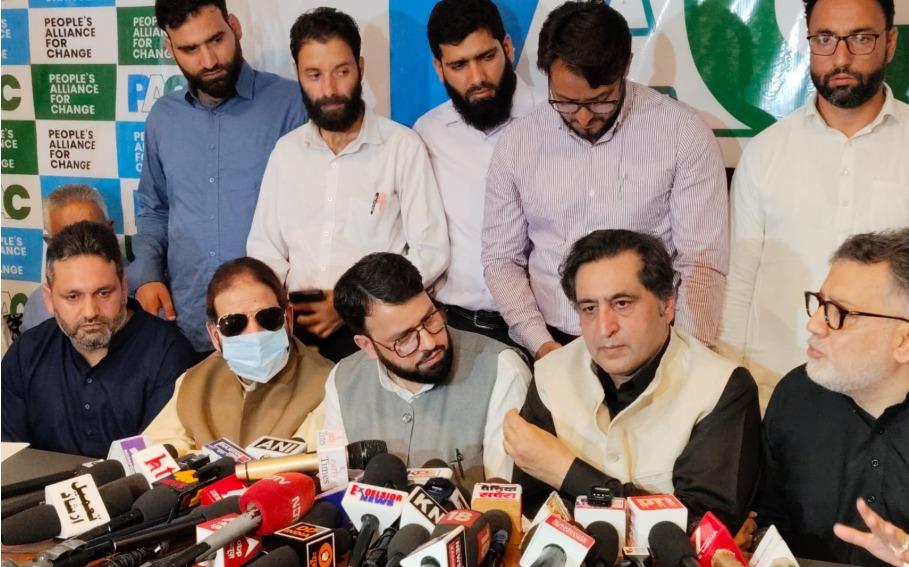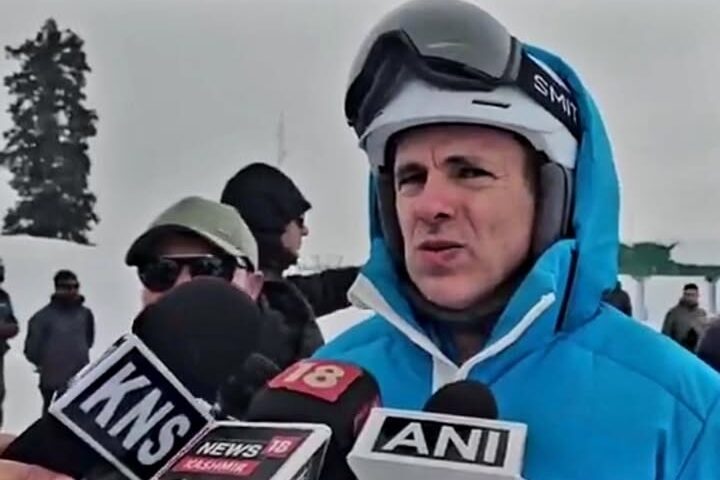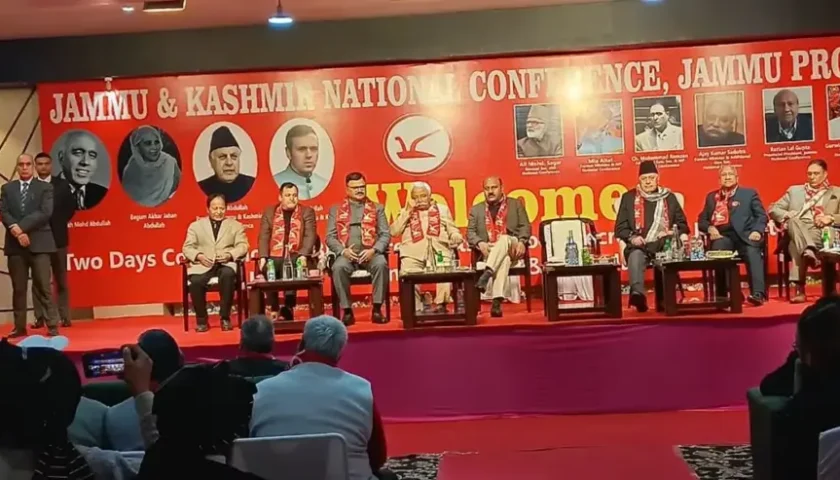A Political Resurgence in Kashmir
By: Javid Amin | Srinagar | 01 July 2025
Jammu and Kashmir’s political theatre is witnessing a tectonic shift. In a move that could potentially alter the region’s power dynamics and revive dormant demands, three regional parties have joined hands to form the People’s Alliance for Change (PAC). This alliance is not just another pre-election arrangement—it’s a statement of intent, a political rebellion, and for many, a flicker of hope.
The new coalition comprises:
-
Sajad Lone’s Jammu and Kashmir Peoples Conference (PC)
-
Hakeem Yaseen’s Jammu and Kashmir Peoples Democratic Front (PDF)
-
Justice & Development Front (JDF), which includes several former members of Jamaat-e-Islami (JeI)
Together, these groups are advocating for a bold agenda—restoration of Articles 370 and 35-A, full statehood for J&K, general amnesty for political detainees, and an end to exclusionary politics. This formation arrives at a politically volatile moment, when the region continues to grapple with the aftershocks of the 2019 constitutional reorganization, prolonged silence in democratic participation, and growing disenchantment among the youth.
What Does the People’s Alliance for Change Stand For?
The newly unveiled People’s Alliance for Change (PAC) isn’t just about forming an electoral bloc—it carries the ambition of rewriting the very script of Kashmiri politics. Below are the core pillars of the alliance’s founding charter titled “Declaration for Change.”
1. Restoration of Article 370 & 35-A
Arguably the most emotional and political cornerstone of the PAC agenda, this demand seeks to reverse the August 5, 2019 decision that abrogated the constitutional provisions granting Jammu & Kashmir special status under the Indian Constitution.
“This was not just a legal move, but a political humiliation,” Sajad Lone said during the PAC’s launch. “We owe it to our people to fight this democratically and constitutionally.”
2. Full Statehood
The alliance demands a reversal of the current Union Territory status and the reinstatement of Jammu and Kashmir’s statehood, including its legislative autonomy. For many, the loss of statehood signaled a symbolic and administrative downgrading.
3. General Amnesty
Another bold proposal is the call for general amnesty for all political detainees, conflict-affected youth, and first-time offenders. This includes those detained during the clampdown post-Article 370 abrogation and youths caught in conflict-related charges.
“Punishment cannot be a permanent state policy,” said PAC co-founder Shamim Ahmad Thoker. “Healing must begin with forgiveness.”
4. Inclusive and Participatory Politics
The PAC strongly criticizes what it calls “exclusionary politics” that has sidelined several religious, ideological, and regional groups. It seeks to reinvent Kashmir’s political landscape by bringing the marginalized back into mainstream discourse, especially those linked with banned or defunct political outfits like Jamaat-e-Islami.
What the Leaders Said: Voices Behind the Vision
The announcement of the PAC was accompanied by strong, emotionally charged statements from its founding members, setting the tone for its narrative and ideology.
Sajad Lone: “A Moral and Political Necessity”
Sajad Lone, the most prominent face in the alliance and chairperson of the Peoples Conference, described the PAC as both a political necessity and a moral obligation.
“The victims of the last three decades—those who have lost lives, livelihoods, and liberty—must find space in the new Kashmir,” he said. “This is not about electoral arithmetic. It’s about ethical politics.”
Lone, once seen as a moderate voice, has in recent years sharpened his rhetoric, especially after feeling betrayed by Delhi’s “betrayal” of regional parties post-2019.
Shamim Ahmad Thoker: “A Platform for Healing”
Representing the Justice & Development Front, which has roots in Jamaat-e-Islami’s ideological base, Thoker called the PAC a platform for political healing.
“There are thousands of young men who turned to extremism not because they wanted to—but because there were no political doors left open for them. We intend to rebuild those bridges,” Thoker said.
Hakeem Yaseen: “Time for Real Representation”
Hakeem Yaseen, a seasoned politician and head of the Peoples Democratic Front, emphasized the importance of pragmatic politics grounded in local needs, not central appeasement.
“New Delhi must realize that peace cannot be purchased through silence—it must be earned through trust and representation,” he added.
Why the PAC Matters: Reading the Political Signals
The People’s Alliance for Change could potentially be a game-changer in Jammu & Kashmir’s political trajectory for several reasons:
1. A Third Pole in the Political Arena
Until now, the political landscape was largely binary: the National Conference (NC)-led alliance versus the BJP-centric narrative. The PAC introduces a third alternative, potentially absorbing the floating vote share of moderate conservatives, ex-separatist sympathizers, and young voters disillusioned with traditional leadership.
2. The Return of Jamaat-e-Islami’s Political Cadre
While the Jamaat-e-Islami remains officially banned in J&K, many of its former functionaries and ideological affiliates are now entering mainstream politics under the PAC umbrella. This could revive the grassroots organizational strength long associated with Jamaat, particularly in south and central Kashmir.
“PAC has created a bridge for ideologically alienated groups to re-engage in peaceful political discourse,” said political analyst Muzamil Wani.
3. Challenge to the NC-PDP Monopoly
Both the National Conference (NC) and the People’s Democratic Party (PDP) are seen by some as compromised or ineffective in protecting Kashmiri interests post-2019. PAC could split votes in key constituencies like Baramulla, Shopian, and Pulwama.
The Declaration for Change: Ideology Over Opportunism
The PAC’s foundation rests on a founding document called the Declaration for Change, which lays out its guiding philosophy. It emphasizes:
-
Unity without uniformity: Despite ideological differences, the parties commit to a shared mission.
-
Rejection of opportunism: A stand against political U-turns and compromises for power.
-
Commitment to democracy: Embracing constitutional and peaceful means to achieve goals.
“We want to restore dignity to Kashmiri politics,” the document reads. “This is not about Delhi versus Srinagar. This is about truth versus tokenism.”
What Political Analysts Are Saying
Political experts have varied but mostly intrigued reactions to the emergence of the PAC:
“PAC Could Reshape Kashmir’s Electoral Map”
-
Prof. Zubair Qureshi of Central University of Kashmir says the PAC has the potential to reshape vote banks in areas previously dominated by PDP and NC.
-
“If they can mobilize the youth and fence-sitters, they can make a real dent,” he added.
“Delhi Will Watch Carefully”
-
Retired bureaucrat and author S.S. Raina believes that Delhi is watching the PAC closely.
-
“They will be cautious—especially with former Jamaat elements resurfacing. But any electoral participation is still better than radical alienation,” he said.
“Can It Sustain?”
-
Not everyone is optimistic. Journalist Nasir Masoodi warned: “We’ve seen such alliances come and go. Unless they show grassroots commitment, this too may fade after a season.”
Road Ahead: Can PAC Deliver What It Promises?
While the PAC’s vision is grand, its execution will be its true test. To transform from a declaration into a decisive political force, it must:
1. Establish Ground-Level Cadres
Rural engagement and grassroots mobilization will be crucial, especially in southern Kashmir, where political vacuum persists.
2. Build Trust with Voters
They must distance themselves from past controversies and show that inclusion is not just tokenistic.
3. Stay United
Kashmir’s political history is riddled with alliances collapsing due to ego clashes or ideological differences. The PAC will need internal discipline and a collective leadership model.
4. Engage With Delhi Without Capitulating
The challenge is to demand justice from New Delhi without appearing antagonistic. This balancing act will define its political maturity.
What PAC Means for the 2025 Elections
With Jammu & Kashmir elections likely in 2025, the PAC could:
-
Fragment traditional vote banks, especially in North and Central Kashmir.
-
Attract first-time voters who seek change beyond NC-BJP rivalry.
-
Force a policy response from the BJP and national leadership on statehood and political amnesty.
If the alliance survives the test of unity, its presence could reshape campaign narratives across the Valley.
Bottom-Line: A Political Reawakening or Familiar Mirage?
The People’s Alliance for Change is not just another footnote in Kashmir’s political journal. It’s a potential inflection point. By combining grievance with governance, and anger with ambition, the PAC could reintroduce Kashmiris to politics as a space of dignity rather than despair.
Whether it succeeds or stumbles will depend not just on elections but on how honestly it addresses the aspirations, anxieties, and alienation of a people who’ve long felt unheard.
In the words of Sajad Lone, “This is not just about change. It’s about who gets to define Kashmir’s future—and on what terms.”




